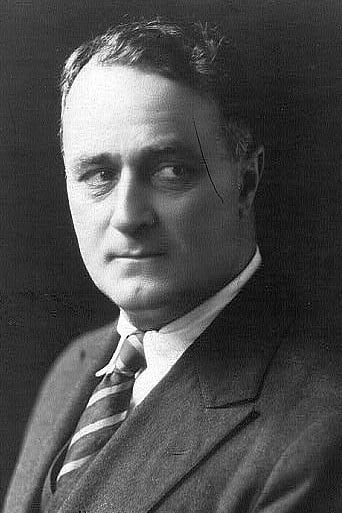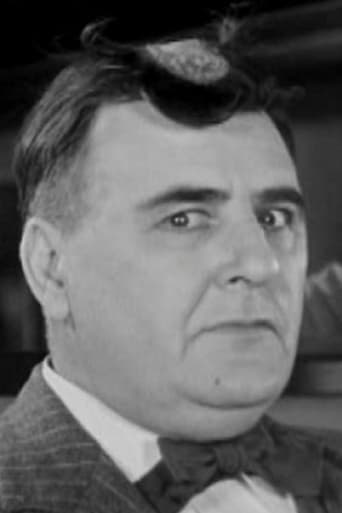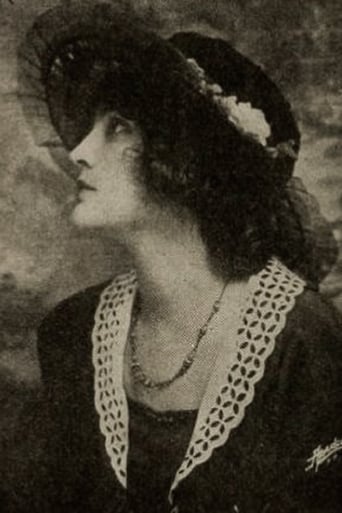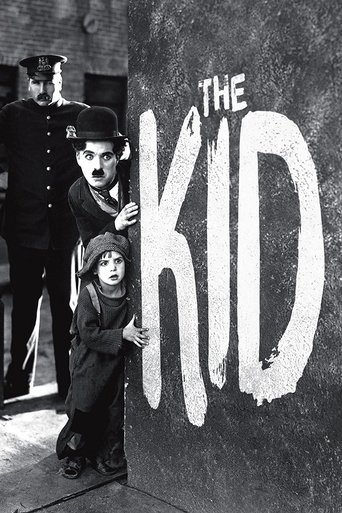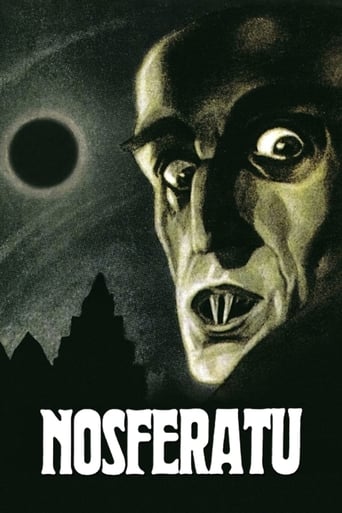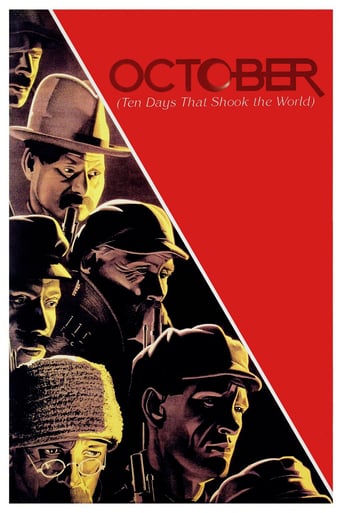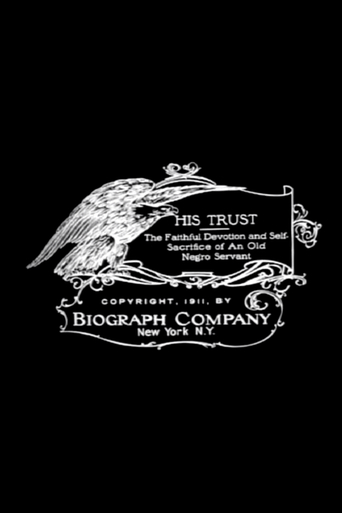

His Trust (1911)
A Confederate officer is called off to war. He leaves his wife and daughter in the care of George, his faithful Negro servant. After the officer is killed in battle, George continues in his caring duties, faithful to his trust.
Watch Trailer
Cast


Similar titles
Reviews
Simply Perfect
A waste of 90 minutes of my life
The best films of this genre always show a path and provide a takeaway for being a better person.
True to its essence, the characters remain on the same line and manage to entertain the viewer, each highlighting their own distinctive qualities or touches.
His Trust is not particularly remarkable as Griffith Civil War shorts go, except for one aspect. Along with its sequel His Trust Fulfilled, it features the only heroic black character in all his films. That's not to let Griffith off the hook for the appalling racism of Birth of a Nation this is still a rather patronising portrayal, not to mention the ridiculous use of white actors in blackface. However it is further proof that Griffith was not an out-and-out racist, and it even hints tentatively at miscegenation.Throughout Griffith's dozen or so Civil War shorts he made while at Biograph you can see the battle scenes evolving. In the one here, the emphasis is more upon chaos than heroism. It's an important development, although Griffith never quite mastered the depiction of war as tragedy he could never get away from trying to make action sequences exciting. Still, there is some good staging here, with Griffith foregrounding individual soldiers being shot against the backdrop of gun smoke, making the casualties stand out and appear real.The battle sequence is brief however, and you can see what Griffith is really trying to develop here is the emotional angle. Unfortunately, while the family scenes are given prominence, they are not done especially well. The scene of the soldiers going off to war is actually a step backwards from the very similar one in his previous civil war film In the Border States. The shot composition is rather messy, and you barely notice Claire McDowell slipping indoors, distraught. Another weakness is that Griffith fails to visually introduce Wilfred Lucas' character. The significance of the "old Negro servant" is mentioned in the opening title, but in his first scene he is shoved to the side of the frame, and the all important moment where the trust is given takes place half on and half off screen.The standout moment in His Trust is towards the end, where the mother and daughter watch their home burn to the ground. It's said that Griffith invented the face in cinema. Well, he probably also invented the back. As in The Unchanging Sea, this is a good example of how he faces actors away from the camera to convey sadness with the subtlety of their body language. There's also a great bit of emotional punctuation as the house finally comes crashing down. However, this well-staged moment is not enough to save what is overall a rather dull picture.
This short film combined with his epic BIRTH OF A NATION is definitive proof that D. W. Griffith had both contempt for Black people and believed strongly in the myth that the "Old South" was paradise for the slaves! The film begins with the Master going off to war and all the slaves crying and wishing him luck (in real life, they probably would have cheered--hoping he'd get his head blown off!). But, as luck would have it, the man soon is pushing up the daisies (that's DEAD to all you who don't understand American slang). His sword is the only thing that returns home. A bit later, the house with the sword catches fire and a devoted slave not only saves the little White girl, but returns to rescue the sword! Then, at then end, he houses the girl and her mom in his shack (a mansion compared to most real slave quarters) and sleeps outside like some sort of devoted dog. Oh, and did I mention that all the Black actors were really White folks in dark makeup?! While I must admit that Griffith made some great films and was very, very important to the early film industry, there must be a lot of people who would love to know he's burning in Hell for his depiction of Black Americans!! This film is important historically and probably should be seen by teens to know just how far we have come.
"His Trust" was the fourth of Griffith's seven Civil War Shorts. Actually there were only six, "His Trust" was the only two-reeler and against Griffith's wishes Biograph released it serially, calling the second reel "His Trust Fulfilled". It lacks the charm of the remaining five shorts and is painfully cornball in comparison to most of Griffith's Biograph work.Wilfred Lucus (in blackface) plays George, a faithful Negro servant entrusted by his owner with the welfare of his wife and young daughter when he goes off to fight for the South. Predictibly the owner dies in a nicely staged battle sequence, union soldiers burn the mansion in a poorly staged arson sequence, and George rescues the daughter and his master's sword. The daughter grows up in George's cabin. In the second reel George pays for her education at a seminary, and resists the temptation to steal when his money runs out. She eventually marries her "cousin" (seriously) and George gets to keep the sword.Although a rather weak story, "His Trust" is significant for several reasons. It's subject, a southern family reduced to poverty by the war mirrors Griffith's own situation. Griffith's father served in Kentucky's "Orphan Brigade" during the Civil War and the family never really recovered from the financial setbacks that resulted. It's hero, a "good Negro", is portrayed affectionately-if somewhat patronizingly; a precursor of what was to come in "Birth of a Nation".Finally, "His Trust" was Griffith's first foray outside the world of single reel shorts. Griffith was pressing Biograph for funding to do longer films. Other studios had already released the five reel "Life of Moses", a four reel "Les Miserables", and a three reel version of "Uncle Tom's Cabin". Biograph's resistance to the concept of longer films would eventually be a factor in Griffith's split with his original studio, a production house that owed its #1 reputation to Griffith's vision and innovation. Even in 1910 Griffith seemingly had grasped the change that was taking place as feature length films would not be released serially but would play as extended showings in legitimate theaters.Then again, what do I know? I'm only a child.
D.W. Griffith's 1911 film "His Trust" is about colored servant George who takes care of the wife and child after the husband died in battle. Good films. Better than average on most levels, although the black face makeup remained the prime focus of the civil war film. Followed by sequel released a week after this film during its initial run in theaters.


